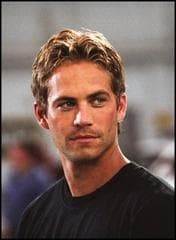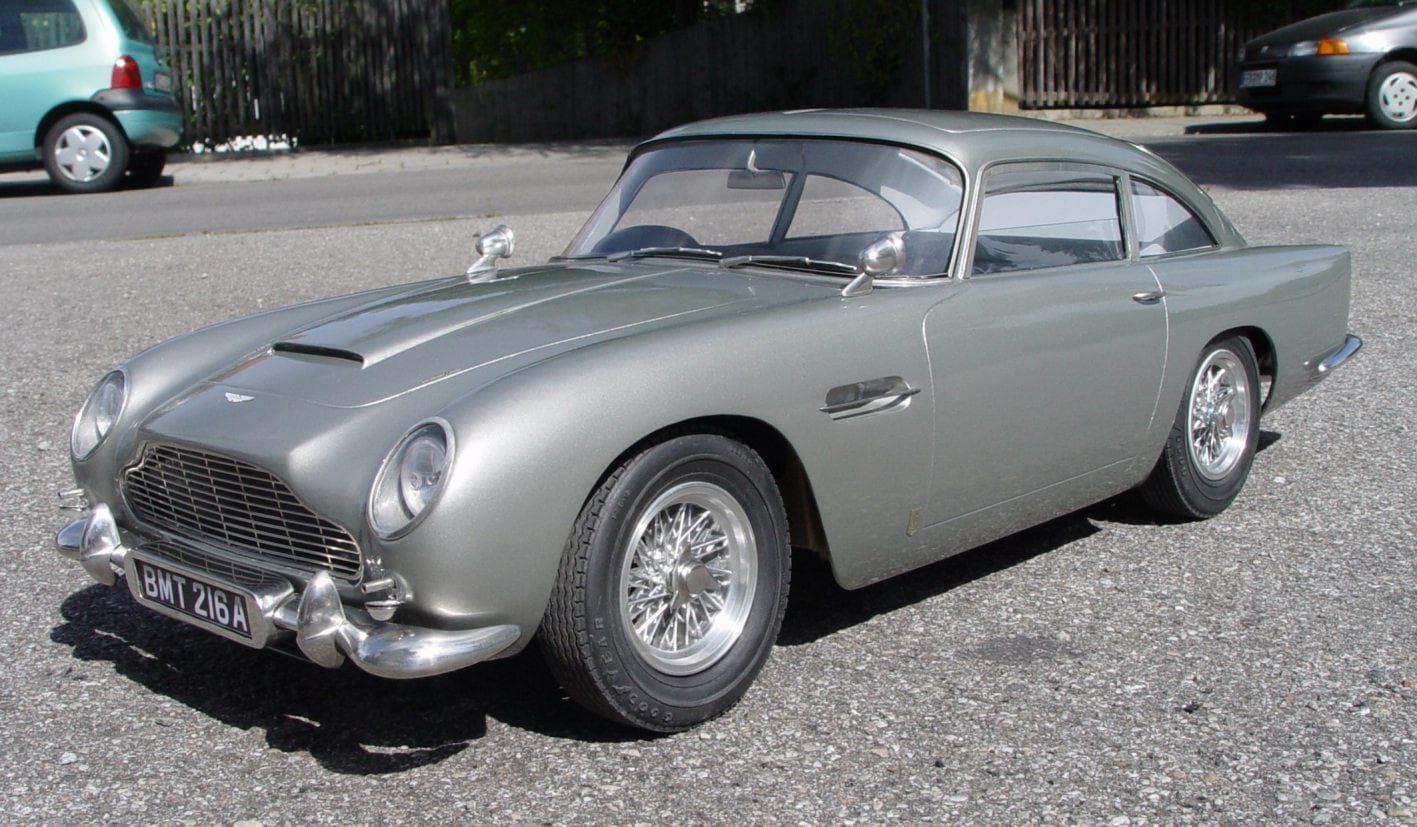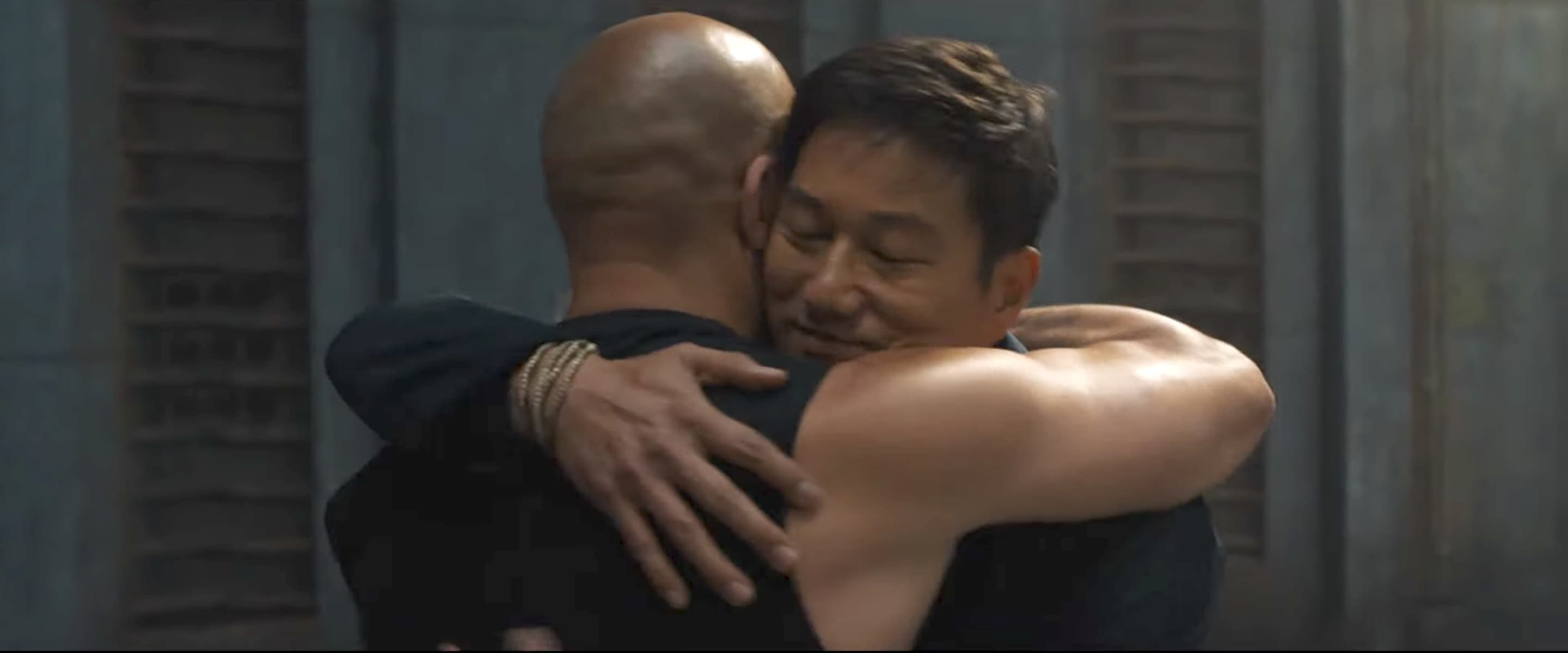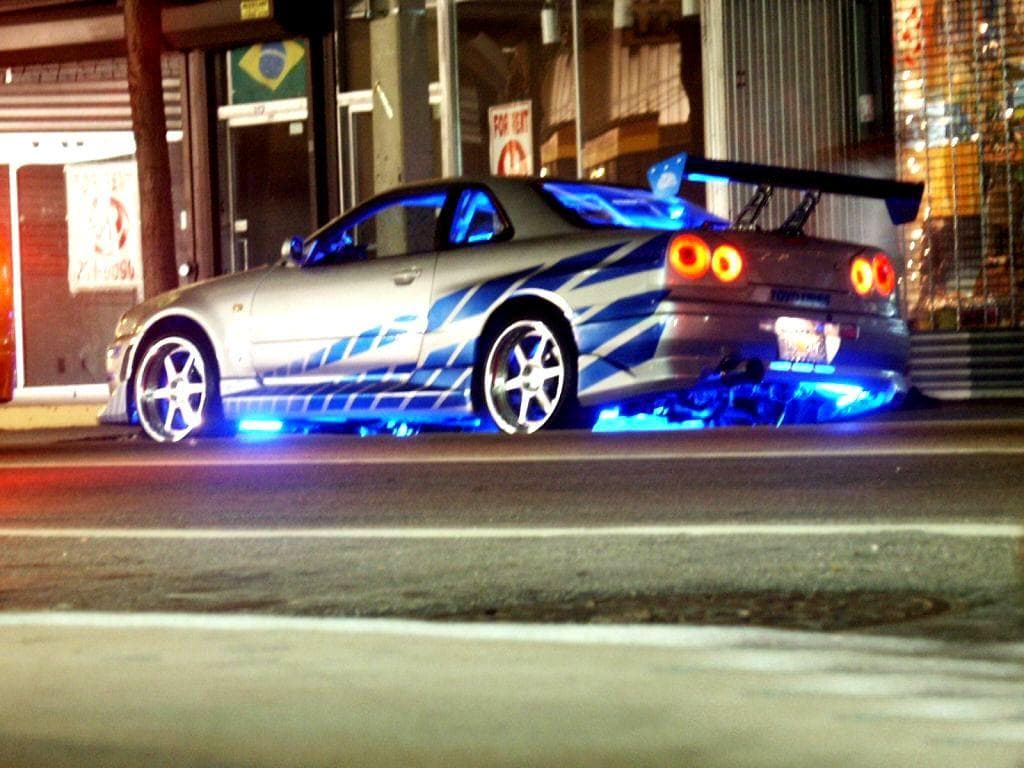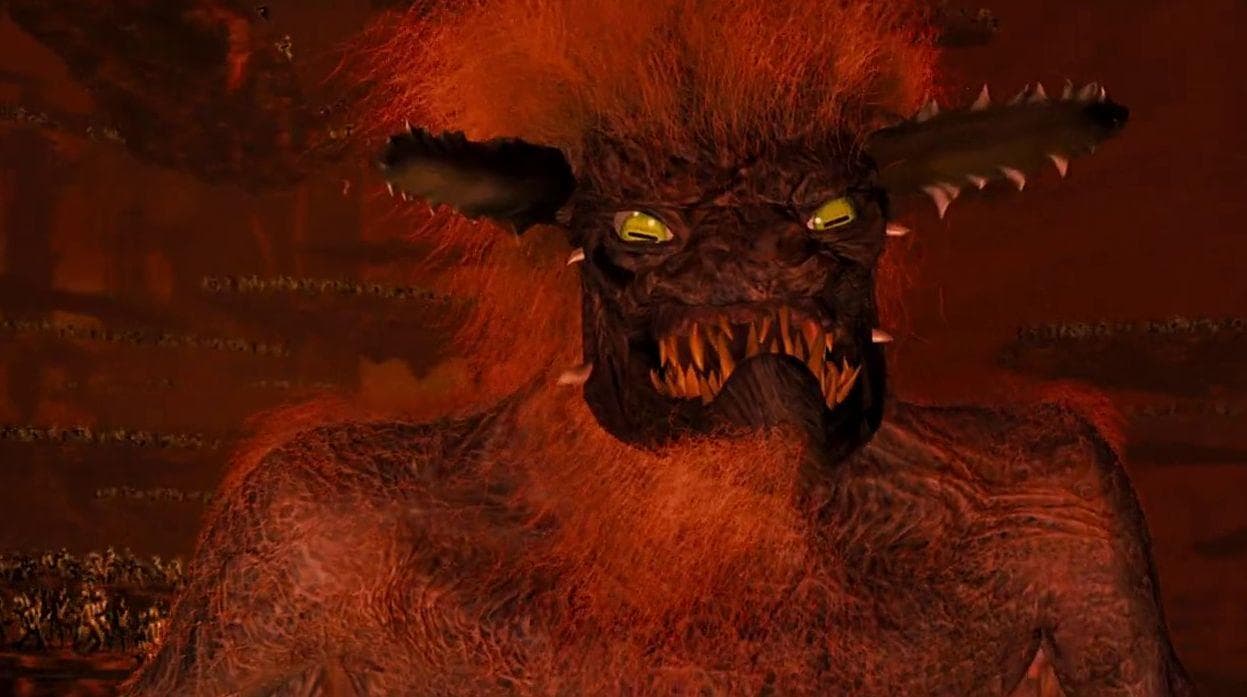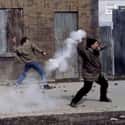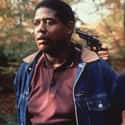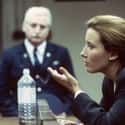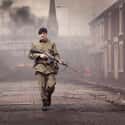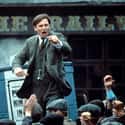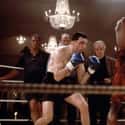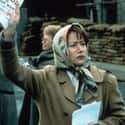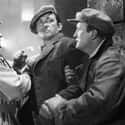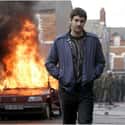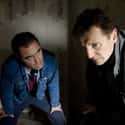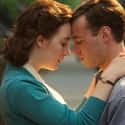-
(#1) Bloody Sunday
- James Nesbitt, Gerard McSorley, Tim Pigott-Smith, Nicholas Farrell, Christopher Villiers, James Hewitt, Kathy Kiera Clarke, Gerard Crossan, Allan Gildea, Mary Moulds, Carmel McCallion, Declan Duddy
What It Gets Right: The historical Bloody Sunday was, on the surface, a simple event: British soldiers took the lives of 13 unarmed civilians who were protesting the internment of Irish political prisoners. The circumstances surrounding the event, however, are complex and mired in the specifics of Irish history. Paul Greengrass's Bloody Sunday focuses not on the dizzying politics of the situation, but on the emotional impact of the shocking event and the real people involved. When the film was released, the son of one of the victims said:
What happened was total unjustified murder, and that is what you see on screen. They try to be fair to the paratroopers, but it is clear the blame lies with them and the British government who ordered them in.
Where It Falls Short: While Greengrass's 2002 film depicts British soldiers gunning down two citizens before an Irishman returns fire, the truth may have been even worse. An official government inquiry declassified in 2010 called the soldiers' actions both " unjustified and unjustifiable." The inquiry paints an even more damning portrait than Bloody Sunday does.
-
(#2) The Crying Game
- Forest Whitaker, Jim Broadbent, Miranda Richardson, Stephen Rea, Ralph Brown, Adrian Dunbar, Jaye Davidson, Tony Slattery, Birdy Sweeney, Bryan Coleman, Andrée Bernard, Jack Carr, Breffini McKenna, Joe Savino, Ray De-Haan, David Crionelly, Shar Campbell, Josephine White
What It Gets Right: This film, set in the present day at the time (1992), concerns the twisting web of deceit into which an IRA member is plunged. Although it does not purport to portray a historical period, it is nevertheless accurate about some key elements, such as the structure of the IRA and their training. Actress Miranda Richardson recalled:
We had an armorer on set to help me with the technicalities... And I got flak from IRA sympathizers for giving such an unflattering portrayal of a terrorist. Isn’t that wonderful?
Where It Falls Short: Because of this film's thrilling noirish complexity, it takes some liberties. The core story with its infamous twist (that will remain unspoiled here) pushes the limits of credibility just as Alfred Hitchcock's Vertigo or Roman Polanski's Chinatown do.
-
(#3) Hunger
- Michael Fassbender, Liam Cunningham, Stuart Graham, Liam McMahon, Brian Milligan, Rory Mullen, Helena Bereen, Larry Cowan, Dennis McCambridge
What It Gets Right: Steve McQueen's Hunger has the benefit of not being a straight-up narrative, as some of these other films are. For long stretches, the film offers a slow, patient examination of conditions in the prison that housed Bobby Sands and other IRA political prisoners during their hunger strike. Although the film focuses on quiet moments, it builds to a harrowing and historically accurate climax: the demise of Sands 66 days into the hunger strike.
Where It Falls Short: The 2008 film is scrupulously accurate and can perhaps only be faulted for minor deviations. The character of Father Moran, for example, conflates two different priests Sands interacted with. This change was made, however, to condense a complicated narrative, so it isn't necessarily dishonest or untrue.
-
(#4) In the Name of the Father
- Daniel Day-Lewis, Emma Thompson, Tom Wilkinson, Saffron Burrows, Pete Postlethwaite, Mark Sheppard, Paul O'Grady, Gerard McSorley, Corin Redgrave, Phil Davis, Jamie Harris, Daniel Massey, John Lynch, Paterson Joseph, Peter Howitt, Sean Lawlor, Frank Harper, Don Baker, Stanley Townsend, Terry O'Neill, Marie Jones, Beatie Edney, Rob Spendlove, Malcolm Tierney, Frankie McCafferty, Bosco Hogan, Denys Hawthorne, Britta Smith, Peter Sheridan, Anthony Brophy, John Benfield, Richard Graham, Tina Kellegher, Stuart Wolfenden, Jer O'Leary, Jonathan Ryan, Alan Barry, Fiona Daly, Dave Duffy, Clodagh Conroy, Nye Heron, Martin Dunne, Oliver Maguire, Trevor Stynes, Ronan Wilmot, Paul Warriner, Mal Whyte, Darren McHugh, Rachael Dowling, Anthony Denham, Guy Carleton, Joe McPartland, Maclean Burke, Brian de Salvo, Liam O'Callaghan, Alistair Findlay, Catherine Dunne, Mick Tohill, Anna Meegan, John Gallagher, Luke Hayden, Reamonn O'Byrne, Martin Murphy, Tim Perrin, Alan Amsby, Aiden Grennell, Aine O'Connor, John Higgins, Karen Carlisle, Mario McGovern, Jo Connor, Bernard Pellegrinetti, Peter Campbell, Peter Sheridan Sr., Maurice Kehoe, Julian Walsh, Philip King, Paul Raynor, Joanna Irvine, Laurence Griffin, Dee Man Kole, Jane Nolan, Owen Conroy, Larry Murphy, Alan O'Connor, Kelly McKeavney, Joe Cashman, John Joe Fontana, John Pickles, Billy Byrne, Leah McCullagh, Joey Legaspi, Jimmie Bergin, Kenneth Edge, Seamus Moran, Emeka Okeki, Joe Jeffers, Jason Murtagh, Barbara Mulcahy, Maureen McBride, Richard Michaelis, Marcus Lynch, Iain Montague, Alison Crosbie
What It Gets Right: Few people defend the imprisonment of the Guildford Four, the four men framed by British authorities for a series of destructive acts in Ireland. In the Name of the Father (1993) makes a passionate case not only for the injustice of the treatment of Gerry Conlon, one of the Guildford Four, but also for the injustice of British policy toward Ireland in the 1970s. It is correct not only in such details as the police withholding evidence that would have exonerated Conlon, but also in its commitment to fully articulating the powerless rage that many Irish people felt at his imprisonment.
Where It Falls Short: Although the film is correct in its larger strokes, it sacrifices historical accuracy for dramatic effect in several key moments. In particular, the final scenes - where Emma Thompson's character argues passionately in court and a series of dramatic confrontations take place - are largely unsubstantiated. Thompson's character was not empowered to cross-examine witnesses or address the judge. There is no record of dramatic confrontations or triumphant moments. The Washington Post's film critic called it "as good a compromise of fact and fiction as you could hope for - and still call it a movie."
-
(#5) '71
- Jack O'Connell, Sean Harris, Sebastian Reid, Martin McCann, David Wilmot, Richard Dormer, Paul Popplewell, Sam Hazeldine, Dawn Bradfield, Paul Anderson, Killian Scott, Valene Kane, Gerard Jordan, Kenton Hall, Liam McMahon, Jack Lowden, Babou Ceesay, Barry Keoghan, Charlie Murphy
What It Gets Right: Although the core story in Yann Demange's '71 is fictional, the film is set during a precise moment in Irish history: the Falls Curfew, an enormous raid that took place in the Falls district of Belfast. Predictably, it didn't take long for the situation to escalate into aggression and skirmishes between British soldiers and IRA members. The film is about a young British soldier in a similar situation, and great care is taken to present the town of Belfast and the riot as they might really have been in 1971.
Where It Falls Short: Despite any historical research and detail the 2014 film captures, it is still the story of a fictional character in a fictional circumstance.
-
(#6) Odd Man Out
- William Hartnell, Cyril Cusack, Robert Newton, Dan O'Herlihy, Fay Compton, Robert Beatty, Denis O'Dea, Kathleen Ryan, Maureen Delaney, Elwyn Brook-Jones, William Fay, F. J. McCormick, Beryl Measor, Kitty Kirwan
What It Gets Right: Carol Reed's Odd Man Out (1947) begins with an intertitle that reads:
This story is told against a background of political unrest in a city of Northern Ireland. It is not concerned with the struggle between the law and an illegal organization, but only with the conflict in the hearts of the people when they become unexpectedly involved.
Despite this warning, Reed and his collaborators fashioned an accurate look at the mechanics and politics of the IRA in the 1930s. The film particularly excels at providing an accurately wide range of citizens' views about the IRA: Some think they're thugs, others support them, and many want to simply get on with their lives.
Where It Falls Short: Odd Man Out's filmmakers were somewhat hamstrung by political censorship and the lack of widely disseminated information about the IRA at the time. They did an admirable job, but tripped up on accuracy on a few points. For example, the IRA was not as powerful in Belfast as the movie suggests. Nevertheless, Reed was "still able to maintain historical accuracy," according to an academic analysis from the Claremont Graduate University.
-
(#7) The Wind That Shakes the Barley
- Cillian Murphy, Liam Cunningham, Orla Fitzgerald, Pádraic Delaney, William Ruane, Mary Murphy, Frank Bourke, Gerard Kearney, Myles Horgan, Mary O'Riordan, Damien Kearney, Aidan O'Hare, Laurence Barry
What It Gets Right: Ken Loach's 2006 Palme d'Or-winning examination of the Irish conflict pays careful attention to historical detail in many sequences. Recreations of the rural County Cork were constructed with the help of a historical advisor. One of its most laudable accomplishments, however, is the way it presents the intense class conflicts within the Irish citizenry as multifaceted and not all motivated by hatred of the British.
Where It Falls Short: The film exaggerates some ideological arguments. Loach centers a key treaty debate on a question of socialism. Brian Hanley of History Ireland argues that the socialist question was actually not terribly pressing in this debate, only arising afterward in reaction to the poor results of the treaty itself.
-
(#8) Michael Collins
- Julia Roberts, Liam Neeson, Alan Rickman, Jonathan Rhys Meyers, Brendan Gleeson, Charles Dance, Aidan Quinn, Stephen Rea, Ian Hart, Jean Kennedy Smith, Gary Whelan, Jer O'Leary, Ronan McCairbre, John Kenny, Michael Dwyer, Martin Murphy
What It Gets Right: A straight-up biopic in the mold of Braveheart, Neil Jordan's 1996 film Michael Collins takes as its subject one of the most famous Irish revolutionaries of all time and depicts events that are ingrained in the Irish national consciousness. Among its most celebrated sequences is the scrupulously accurate depiction of the execution by firing squad of the leaders of the Easter Rising.
Where It Falls Short: Michael Collins is one of the most fiercely debated movies on this list, with some contemporary writers accusing it of being an "event picture" that attempts to sweeten the facts. A writer for The Guardian takes issue with Neeson's casting, noting that Collins was 25 at the time, while Neeson was 44. This radically changes the tone of Collins's request that young men lay down their lives for Ireland.
-
(#9) The Boxer
- Daniel Day-Lewis, Brian Cox, Emily Watson, Ken Stott, Gerard McSorley, Kenneth Cranham, Ian McElhinney, David Hayman, Tom Bell, Kirsten Sheridan, Tony Doyle, Lorraine Pilkington, Paul Ronan, Eleanor Methven, Britta Smith, Peter Sheridan, Ciaran Fitzgerald, Vinny Murphy, Jer O'Leary, Noel O'Donovan, Joan Brosnan Walsh, John Cowley, Maria McDermottroe, Liam Carney, Veronica Duffy, Mark Mulholland, Gerry Storey, Des Braiden, Nye Heron, Padraig O'Neill, Martin Dunne, Andrea Irvine, Michael James Ford, Joe Gallagher, Oliver Maguire, Frank Coughlan, Tim McDonnell, Damien Denny, Tommy O'Neill, Cornelius Carr, Joan Sheehy, Tania Grier, David Heap, Mick Nolan, Gavin Kennedy, Carol Scanlan, Tom Maguire, John Hewitt, Jack Waters, Don Foley, Brian Milligan, Derbhla McClelland, Conor Bradford, John Sheridan, Kate Perry, Norman Kelly, Catherine Dunne, Mick Tohill, Sean Donaghy, Maurice Henry, Anna Meegan, Pat Mulryan, Larry Byrne, James Hayes, Juliet Cronin, Peter O'Donoghue, David McBlain, Paul Sheridan, Jules Kingelesi, Niall Shanahan, Joan McGarry, Sean Brunett, Eamon Brown, Tess Sheridan, Philip Sutcliffe, Sharon Dunne, John Wall, Richie Pigott, Paul Wesley, Clayon Stewart, Ian Thompson, Al Morris, Martin Lynch, Kerrie Duggan, Daragh Donnelly, Sandra Corbally, Brian Russell, Gavin Brown, Sean Kearns, Joe Colgan, Dennis Mika, Theresa McComb, Janine McGuinness, Joseph Rea, Josie Doherty, Reamonn O'Byrne, John Cooke, Berts Folan, Fred Tiedt
What It Gets Right: Any movie starring Daniel Day-Lewis has at least one historical expert on set: Daniel Day-Lewis. The actor famously prepares meticulously for every role, and often learns everything there is to know about his character. This was especially true of The Boxer (1997), in which Day-Lewis plays a former IRA man trying to go straight as a boxer after his release from behind bars. However, Day-Lewis's meticulously researched performance isn't the only strength of this movie. The Boxer also presents a nuanced view of the IRA, with a range of different civilian attitudes, capturing the real feelings in Belfast at the time.
Where It Falls Short: The movie ends with a signal that the IRA is interested in pursuing peace - a satisfyingly dramatic but reductive flourish. Many sections of the IRA were never anything but intractably opposed to peace or compromise. To imply that a small group like the one portrayed in this movie might shift the thinking of the IRA in general is inaccurate.
-
(#10) Some Mother's Son
- Helen Mirren, Aidan Gillen, Fionnula Flanagan, David O'Hara, John Lynch
What It Gets Right: Director Terry George said of his film:
The main characters in "Some Mother's Son" are fictional, but the events are historically accurate. During the Hunger Strike, 21 Irish mothers faced the dilemma portrayed in this film.
He is correct, and many of the details of the film were faultlessly researched.
Where It Falls Short: At the time of its release in 1996, the film was roundly criticized for being overly sympathetic to the IRA point of view, and not including any pro-British or Unionist perspectives. While this is undoubtedly true, it's hard to imagine how a movie about the mothers of political prisoners could include such a perspective. Regardless, some people in this milieu favored union and did not necessarily stand with the strikers.
-
(#11) The Informer
- Heather Angel, Victor McLaglen, Jack Mulhall, Donald Meek, Una O'Connor, Preston Foster, Joe Sawyer, Wallace Ford, J. M. Kerrigan, Frank Hagney, Frank Moran, James Murray, Earle Fox, Sam Harris, Francis Ford, Robert Homans, Robert Parrish, Denis O'Dea, Eddy Chandler, Frank Baker, Harry Tenbrook, Clyde Cook, Anne O'Neal, Arthur McLaglen, Neil Fitzgerald, Pat Moriarity, Barlowe Borland, Steve Pendleton, Frank Marlowe, Cornelius Keefe, Bob Perry, May Boley, D'Arcy Corrigan, Pat Somerset, Leo McCabe, Grizelda Harvey
What It Gets Right: By far the earliest film on this list, The Informer (1935) does not have the benefit of historical perspective, although it's set in 1922. Still, it manages a high degree of accuracy, especially in its realistic depiction of the IRA and the Black and Tans, the British police force, from the detailed and precise uniforms to the fear citizens felt.
Where It Falls Short: Director John Ford adapted this story from a novel and made some significant changes that force a particular point of view on the audience. Most glaringly, Ford changed the novel's focus from a communist organization to the IRA. This allowed Ford to idealize and romanticize the rebels without incurring the political wrath of American censors. However, it also meant he presented an overly simplified view of the Irish civil conflict, one with clear heroes and villains. The reality was more complex.
-
(#12) Fifty Dead Men Walking
- Rose McGowan, Ben Kingsley, Kevin Zegers, Jim Sturgess, William Houston, Michael McElhatton, Nick Dunning, Natalie Press, Gavin O'Connor, David Pearse, Gerard Jordan, Tom Collins, Joe Doyle
What It Gets Right: Based on the autobiography of Martin McGartland, Fifty Dead Men Walking has perhaps the strongest base in reality of any film on this list. The 2008 film is intensely realistic in its treatment of an informer who rises through the ranks of the IRA. We see McGartland pressured into almost killing a supposed turncoat and see his handlers pressure him in a variety of ways. At the same time, we're given the high stakes and heartbreak of McGartland's confession that he was an informer the entire time.
Where It Falls Short: An academic study on the film pointed out that while the movie is realistic, it isn't necessarily historically accurate. Many changes were made, which the film acknowledges. Names were changed, characters amalgamated, and key details elided to create the most effective film possible. Perhaps most problematic, McGartland's motivations for informing, which were intimately tied to the complex Irish politics of the time, are dramatically simplified.
-
(#13) Five Minutes of Heaven
- Liam Neeson, James Nesbitt, Anamaria Marinca, Conor MacNeill, Jonathan Harden, Niamh Cusack, Richard Dormer, Mark Ryder, Diarmuid Noyes, Gerard Jordan, Paula McFetridge, Paul Garret, Gerry Doherty, Juliet Crawford, Kevin O'Neill, Katy Gleadhill, Mathew McElhinney
What It Gets Right: Unlike the other movies on this list, Five Minutes of Heaven is not a period piece. Instead, it concerns two men trying to reconcile what they did and witnessed during the Troubles. However, the 2009 film contains accurate analyses of both Troubles and post-Troubles attitudes in Ireland, as well as a few juicy historical details. During a montage early in the film, younger versions of the two men walk through a meticulously recreated 1970s Irish suburb, and both watch the BBC show The Generation Game, which was popular at the time.
Where It Falls Short: As with some other movies on this list, Five Minutes of Heaven is an entirely fictional story that represents historical events indirectly.
-
(#14) Cal
- Helen Mirren, John Lynch, Ray McAnally
What It Gets Right: Some historical events are largely agreed upon. For example, it's difficult to find anyone who would defend Germany's role in WWII. However, in a case like the Troubles, there are heroes and villains on both sides, and the conflict is the result of centuries of oppression and turmoil. Joseph Roquemore, author of American History Goes to the Movies, described Pat O'Connor's 1984 film Cal, adapted from the novel by Bernard MacLaverty, as "scrupulously evenhanded - for every fuming IRA fanatic there is a... UVF [Ulster Volunteer Force] thug." That sort of equanimity is difficult to achieve when addressing such a chaotic period in history.
Where It Falls Short: However, the very evenhandedness some critics praised in Cal also opens it up to accusations of passivity. For historians of both sides, the British and Irish simply were not equally to blame, and a film like Cal is guilty of refusing to take a stand. Paul Dunbar, PhD, author of A Critical History of History in Moving Pictures, said of Cal, "The best thing about this film is that it was the last of this series of films that ignored the reality of British occupation and the struggle of Irish independence."
-
(#15) Brooklyn
- Saoirse Ronan, Julie Walters, Jim Broadbent, Domhnall Gleeson, Emory Cohen, Alisha Heng
What It Gets Right: Adapted from the Colm Toibin novel, this story of an Irish immigrant to Brooklyn in the 1950s focuses on a familiar theme: the dream of a better life in America. As Toibin himself said, writing in The Guardian:
In America, they made clear, you could become a millionaire. Even the ones who had not become rich themselves sounded, or looked, as if some day they might be worth a fortune. It would just take a bit of luck.
Many similar "coming to America" narratives often fail to address the deep ambivalence of the immigrant experience. Falling in love with a new land is often balanced with a paralyzing homesickness, captured here in Saoirse Ronan's performance.
Where It Falls Short: Brooklyn, released in 2015, runs into issues not so much in what it represents, but what it doesn't. By choosing to set this spare, simple love story against the backdrop of Irish immigration to America, the film inevitably ends up oversimplifying the reality of Irish immigration. Both Ireland and Brooklyn itself are presented without the filth, desperation, and poverty that existed in spades.
New Random Displays Display All By Ranking
About This Tool
Irish filmmakers' cooperation with other countries has also become diversified, and the film industry has developed greatly. It is no surprise that there are various movies about Irish history. Actually, Irish history is very complicated, its history always involves some form of bloodshed, the topics of various historical figures or events are always great inspirations, from exciting epic stories to heart-breaking love stories.
Do you also have an interest in Irish history? Some of the movies based around real events from Ireland's past, this page is a collection with 15 items, including the best movies about Irish history from different eras, and you can see the posters of movies and other information.
Our data comes from Ranker, If you want to participate in the ranking of items displayed on this page, please click here.

